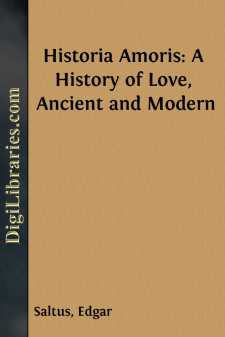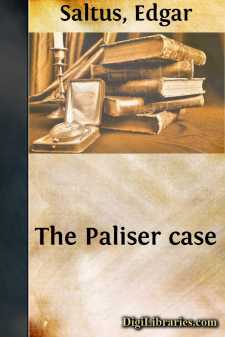Categories
- Antiques & Collectibles 13
- Architecture 36
- Art 48
- Bibles 22
- Biography & Autobiography 813
- Body, Mind & Spirit 142
- Business & Economics 28
- Children's Books 17
- Children's Fiction 14
- Computers 4
- Cooking 94
- Crafts & Hobbies 4
- Drama 346
- Education 46
- Family & Relationships 57
- Fiction 11829
- Games 19
- Gardening 17
- Health & Fitness 34
- History 1377
- House & Home 1
- Humor 147
- Juvenile Fiction 1873
- Juvenile Nonfiction 202
- Language Arts & Disciplines 88
- Law 16
- Literary Collections 686
- Literary Criticism 179
- Mathematics 13
- Medical 41
- Music 40
- Nature 179
- Non-Classifiable 1768
- Performing Arts 7
- Periodicals 1453
- Philosophy 64
- Photography 2
- Poetry 896
- Political Science 203
- Psychology 42
- Reference 154
- Religion 513
- Science 126
- Self-Help 84
- Social Science 81
- Sports & Recreation 34
- Study Aids 3
- Technology & Engineering 59
- Transportation 23
- Travel 463
- True Crime 29
Imperial Purple
by: Edgar Saltus
Description:
Excerpt
THAT WOMAN
When the murder was done and the heralds shouted through the thick streets the passing of Caesar, it was the passing of the republic they announced, the foundation of Imperial Rome.
There was a hush, then a riot which frightened a senate that frightened the world. Caesar was adored. A man who could give millions away and sup on dry bread was apt to conquer, not provinces alone, but hearts. Besides, he had begun well and his people had done their best. The House of Julia, to which he belonged, descended, he declared, from Venus. The ancestry was less legendary than typical. Cinna drafted a law giving him the right to marry as often as he chose. His mistresses were queens. After the episodes in Gaul, when he entered Rome his legions warned the citizens to have an eye on their wives. At seventeen he fascinated pirates. A shipload of the latter had caught him and demanded twenty talents ransom. "Too little," said the lad; "I will give you fifty, and impale you too," which he did, jesting with them meanwhile, reciting verses of his own composition, calling them barbarians when they did not applaud, ordering them to be quiet when he wished to sleep, captivating them by the effrontery of his assurance, and, the ransom paid, slaughtering them as he had promised.
Tall, slender, not handsome, but superb and therewith so perfectly sent out that Cicero mistook him for a fop from whom the republic had nothing to fear; splendidly lavish, exquisitely gracious, he was born to charm, and his charm was such that it still subsists. Cato alone was unenthralled. But Cato was never pleased; he laughed but once, and all Rome turned out to see him; he belonged to an earlier day, to an austerer, perhaps to a better one, and it may be that in "that woman," as he called Caesar, his clearer vision discerned beneath the plumage of the peacock, the beak and talons of the bird of prey. For they were there, and needed only a vote of the senate to batten on nations of which the senate had never heard. Loan him an army, and "that woman" was to give geography such a twist that today whoso says Caesar says history.
Was it this that Cato saw, or may it be that one of the oracles which had not ceased to speak had told him of that coming night when he was to take his own life, fearful lest "that woman" should overwhelm him with the magnificence of his forgiveness? Cato walks through history, as he walked through the Forum, bare of foot—too severe to be simple, too obstinate to be generous—the image of ancient Rome.
In Caesar there was nothing of this. He was wholly modern; dissolute enough for any epoch, but possessed of virtues that his contemporaries could not spell. A slave tried to poison him. Suetonius says he merely put the slave to death. The "merely" is to the point. Cato would have tortured him first. After Pharsalus he forgave everyone. When severe, it was to himself. It is true he turned over two million people into so many dead flies, their legs in the air, creating, as Tacitus has it, a solitude which he described as Peace; but what antitheses may not be expected in a man who, before the first century was begun, divined the fifth, and who in the Suevians—that terrible people beside whom no nation could live—foresaw Attila...!











